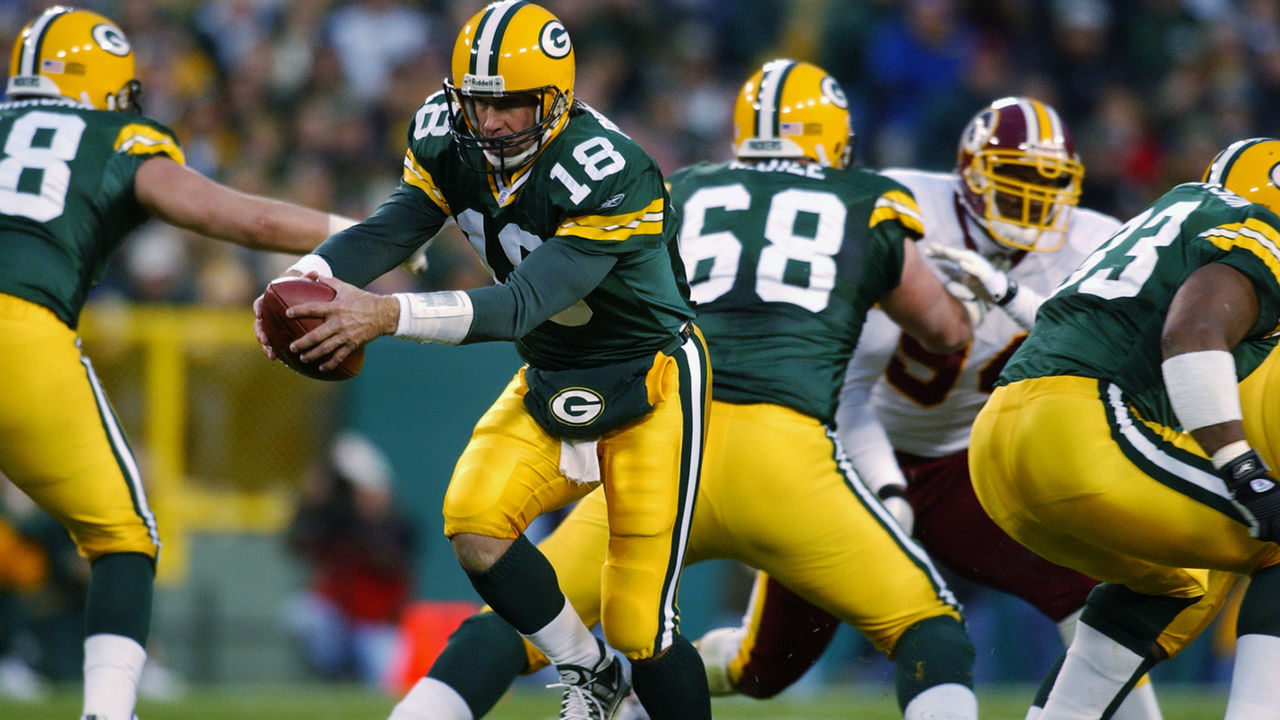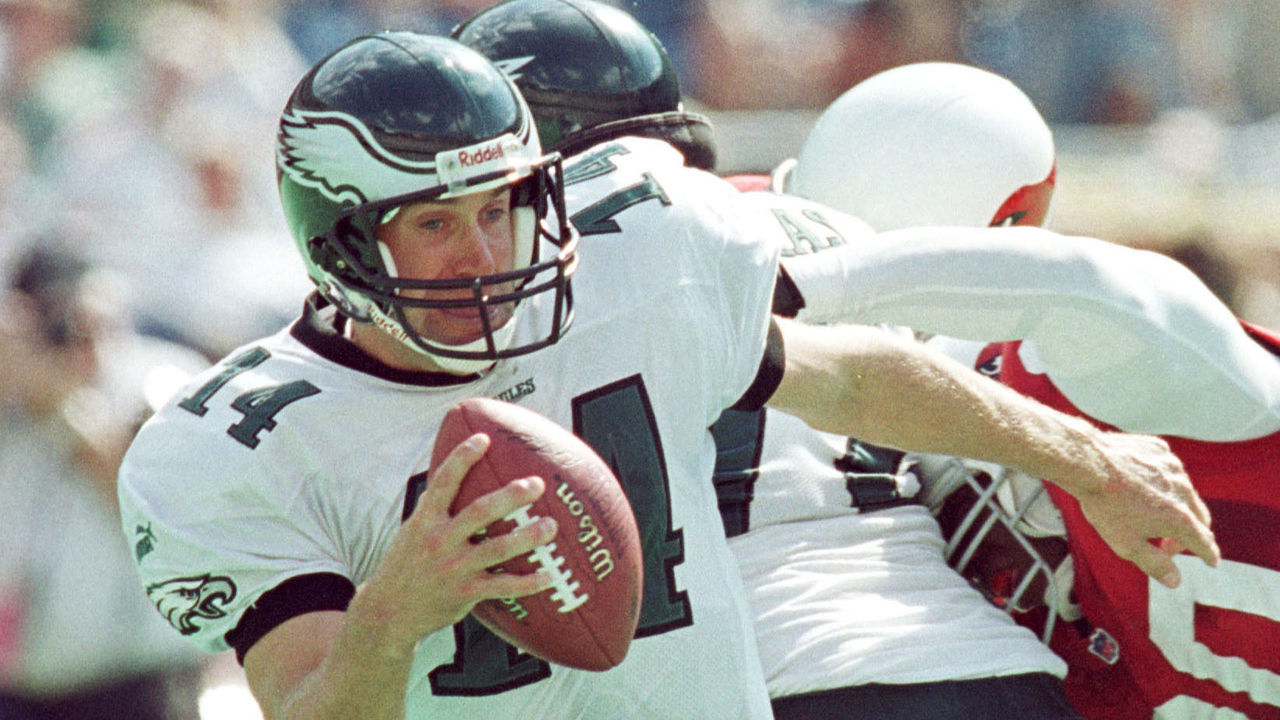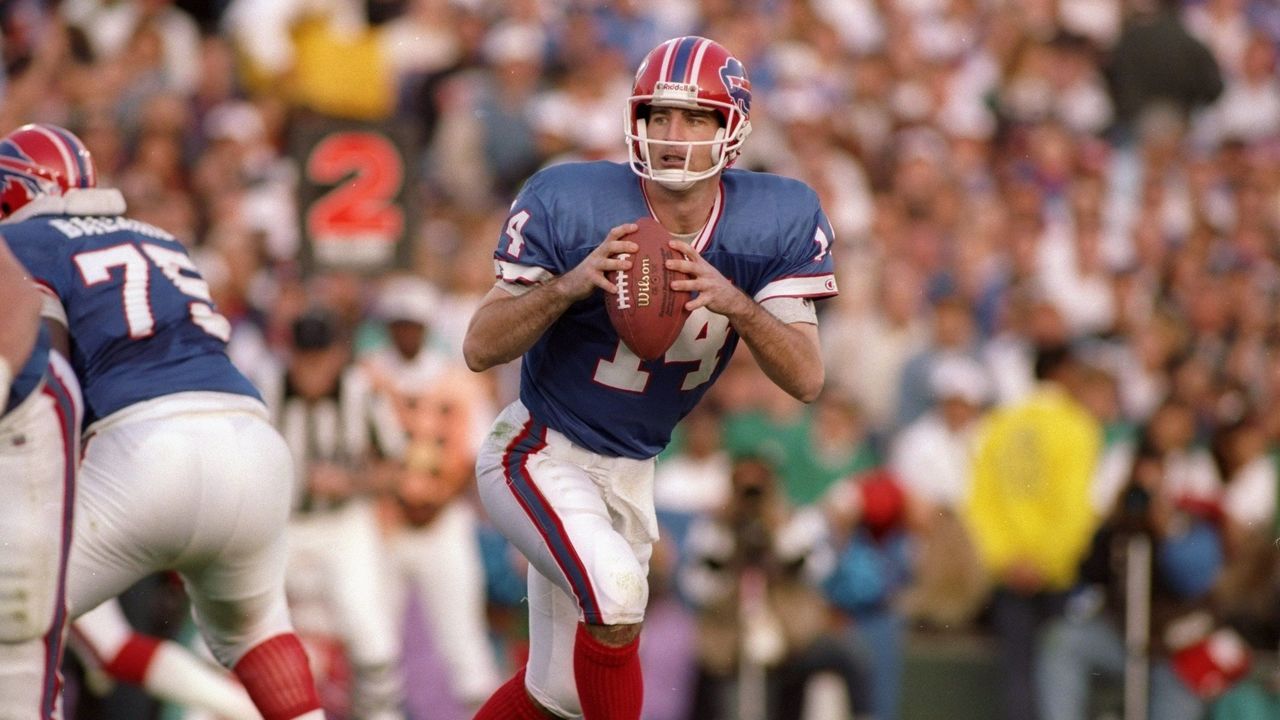Sage Rosenfels column: How 3 backup QBs delivered the Eagles' 1st Super Bowl title
If you want to know the real reason Eagles head coach Doug Pederson won the Super Bowl in his second year on the job, you should note the fact that Pederson wasn't a great NFL quarterback; if he had been, Philadelphia might still be without a Lombardi Trophy.
As a former backup quarterback, I often hear that my previous occupation is the best job in the world. You can make good money without having to deal with the pressure of being the starter, or the brutal hits that go with playing 16 games a year. I can assure you, however, that backup quarterbacks are still under a lot of pressure, and since the pay is generally about one-tenth what an NFL starter receives, getting hit a lot less seems like a fair trade-off.
Usually, quarterbacks who spend a decade or more watching games from outside the white lines lack one form or another of natural talent, which prevents them from breaking through as a full-time starter. Their issues may be arm strength, accuracy, athletic ability, or inconsistency. For whatever reason, every NFL team - including their current one - assumes they aren't starter material at that point in their careers.
But a lifelong backup quarterback is almost never dumb. Usually, backups who have survived more than a decade have learned three or more offenses, played for multiple head coaches, and bounced around to various franchises. Since they probably don't have as much natural talent, they instead provide value as smart team players that have the respect of their teammates.

Pederson was everything you wanted as a second or third thrower. He didn’t have a ton of talent, but his smarts and toughness made him an ideal fit for five NFL teams. After going undrafted, he began his career in Miami, learning from Don Shula while watching Dan Marino work his magic; he also played alongside Bernie Kosar, Scott Mitchell, and Steve DeBerg.
What an amazing experience Pederson must have had playing with those players and coaches. The wealth of football knowledge in those Dolphins quarterback rooms alone is astounding.
He then spent two different seasons in the World Football League. After that, it was off to the Packers - and an entirely new NFL experience.
In Green Bay, he was playing for Mike Holmgren and with Brett Favre, Rick Mirer, Jim McMahon, and Steve Bono. Andy Reid, Pederson's quarterback coach in Green Bay, liked him so much that he took him to Philadelphia to be his starter when he got the Eagles' HC job.
Pederson was finally impressing the right people around the NFL, but he struggled during the first eight games of his first season with the Eagles. He was eventually replaced by the third overall pick in the previous spring’s draft, Donovan McNabb. Of course, Pederson was never meant to be the long-term starter, but Reid needed somebody to show McNabb how an NFL starter competes every day. This is common for franchises developing a young quarterback - they want him to sit and learn for at least half of his rookie season. The starter's job is to set an example and demonstrate how a real pro works.

After a season in Philly, Pederson had a cup of coffee in Cleveland, backing up Tim Couch, before returning for a second stint in Green Bay. He sat behind Favre, who never got hurt, and was also the holder for the Packers' kickers (not a bad skill to have if you're just trying to hold a spot on the team).
Finally, after 15 NFL seasons, his body couldn’t take the pounding anymore and Pederson retired.
Then he coached high school football in Shreveport, La., for four seasons before returning to the NFL. Reid brought him back to the Eagles as a coach, and kept him on board after bolting for the Kansas City Chiefs. Before he knew it, Pederson was the head coach of the Eagles. Two years later, he’s got a Super Bowl win to show for it. But after his long playing career, his rise to the top was no accident.
The coaching staffs and quarterbacks that he worked with, studied film with, installed plays with, and competed alongside over the last three decades have an amazing amount of football knowledge. Pederson gets to tap into all of that history when making decisions. When he speaks, you may hear phrases that could have come from Shula, Marino, Holmgren, Reid, or Favre. Take the time to study his offense and overall football philosophy, and you'll see concepts from all around the National Football League. When the Eagles hired Pederson two years ago, they got his accumulated history and knowledge as well.
Backup quarterbacks who become coaches have already learned how to run an effective NFL offense, even if their quarterback isn’t supremely talented. Because they know their own limitations, finding ways to get easy completions for their current quarterback is an evolutionary instinct. From watching some of the all-time greats zip the ball all over the field, they also know what is possible if their starter is oozing with natural talent.
Philadelphia moved up in the draft to grab Carson Wentz two years ago because Pederson saw a player with rare talent - a big, strong athlete with a huge arm, solid accuracy, and an old-fashioned work ethic. It didn't take the coach long to make Wentz into an NFL star.
Pederson also saw an undervalued passer in Nick Foles after coaching him in Philly and Kansas City. Foles came into the league and had one of the best seasons in NFL history in 2013. Since then, however, his game had regressed to average and he was relegated to backup status.
Pederson knew Foles still had plenty of talent. He saw the big arm and great touch on the deep ball. He saw the athleticism and ability to throw accurately on the run. And he saw all of this because he didn't have it when he was playing. It's easy to identify talent in someone else when you never had as much of it yourself.

When Pederson became head coach in Philly, he hired an offensive coordinator who had a similar backstory to his own. Frank Reich was a longtime backup quarterback in the NFL too, and played for four teams over 14 seasons.
Together, Pederson and Reich created a perfect offense for Carson Wentz, who was having an MVP season when he tore his ACL on Dec. 3. Then, they found plays that better fit Foles' experience, including concepts from Chip Kelly's spread scheme.
After a few weeks getting settled with the starting offense, the payoff of this subtle pivot came in the NFC Championship Game against the Minnesota Vikings. The 2013 Nick Foles was back, and gaining confidence with each pass attempt.
Foles' performance in the Super Bowl was incredible, especially for a guy who was signed to be a backup. Of course, his talent was always there. Nobody throws 27 touchdowns to two interceptions in one season without an absurd amount of natural ability.
Both coaches could understand the spot Foles found himself in this season, since they'd been in his shoes as players. Their experiences undoubtedly helped them get Foles to play the finest football of his career in the two most important games of the season.
In the press conferences following Super Bowl LII, nearly every Eagles player and coach described Doug Pederson's play-calling and game management as "gutsy" - Reich, Chris Long, and Brent Celek all used the same word. The Philadelphia Eagles played loose and confident on football's biggest stage. That is a direct reflection of their head coach's mindset, which filtered down to the team - especially the quarterbacks.
Foles had lost his edge, but found the right coaches to bring it back. Pederson, Reich, and Foles were all backups at some point in their careers. Now they can all call themselves Super Bowl champions.
Sage Rosenfels is a former 12-year NFL quarterback who writes and contributes to radio and podcasts about the NFL and college football. Find him on Twitter @SageRosenfels18.
(Photos courtesy: Getty Images)